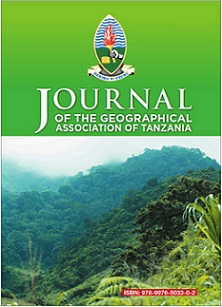The Role of Radio Surveillance in the Fight Against Deforestation in Rufiji, Tanzania
Abstract
This paper examines the role of radio surveillance in the fight against deforestation in Rufiji, Tanzania. It presents the findings of a study that was guided by three research questions: (i) What techniques are used by radio programme producers in alerting people on the dangers of deforestation in Tanzania? (ii) How useful and helpful is forest information communicated through the radio to Rufiji community members? (iii) To what extent does the radio influence forest conservation behaviour among community members in Rufiji? Data were collected from a series of Urithi Wetu programme on TBC Taifa, and its content was analysed qualitatively to yield input that depicts the perceived role of radio surveillance. Complementary data were collected using questionnaires and focus group discussions. The findings reveal that the radio has largely failed to use instrumental surveillance function of the environment to empower community members find alternative sources of income generation and refrain from actions that are detrimental to forest conservation efforts. In fact, the findings expose the relative limitation of the success of the radio in both scope and intensity in using several techniques to make its audiences aware of impending and prevailing threats associated with TBC-Taifa tree-felling. Thus, remedial measures would include a shift in focus to solution-based programmes and integration of the views of the community members in radio programmes to optimise the impact on the target audiences.
Keywords: radio, community members, surveillance role, deforestation, forest conservation


